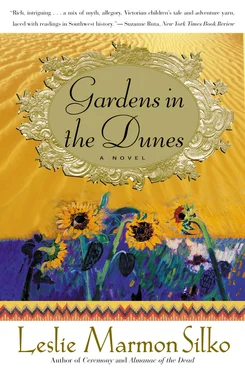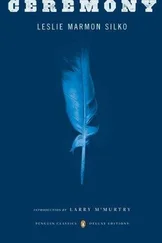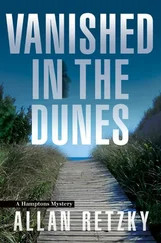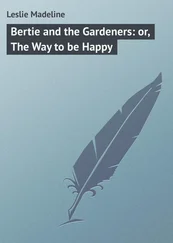Carefully he slit the leather and removed the field boot from the injured limb; the leg seemed as if it was a separate object, not his own, with no relation to the pain that left him sweating and nauseous. He removed the bootlace and his belt, pausing from time to time to let the nausea subside. He gingerly maneuvered the leg until it lay parallel to the tripod, then he lashed the leg to the tripod with the bootlace and belt. He knew it was imperative the leg remain immobile, or bone fragments might sever an artery.
Inch by inch he crawled, pushing aside rocks and debris so the injured limb he dragged would have a clear path. He was soothed by this contact with the earth and her gravity that held him close with no danger of a fall. The limb was numb now and the pain seemed to migrate to his other leg, then to his shoulders and arms. After what seemed like hours, he reached the riverbank, though he still was some distance upriver from the site of the temporary camp where the canoes were tied. He was very thirsty by then; the canteen with safe water and the packet of purification tablets were lost somewhere on the hillside, but he knew that to drink untreated river water invited fever and illness more grave than any broken limb. The sun was high overhead now; his rescuers should be along soon.
He dreamed about the white marble pool and fountain in his sister’s garden; in the dream he drank and drank the cool pure water to satisfy his thirst. Others at the garden party were sipping champagne, and among them, oddly enough, relaxed as if she belonged, was the Negress from the cantina with the little monkey in her arms. One of the guests, an older man he did not recognize, approached and warned him the water was not safe. He offered Edward a glass of champagne, but suddenly the Negress bared one breast to him and the voices of the other guests called out, “Drink! Drink!”
He woke when he realized the voices in his dream were voices on the river; frantically he called, but from his prone position his cries were muffled by the vegetation and the rush of the river. He must pull himself up now or he was lost. With all his will, with all his remaining strength, he pulled himself up into sitting position and yelled again. Surely the canoes that paddled against the upriver currents could not pass by so quickly; but it was no use; he could see nothing. The rescue party would pass a last time on their return trip downriver. Stand up or die, a voice inside him said. He braced himself against a fallen tree and managed to stand if he leaned back hard against the tree; the trouble was the surrounding foliage would allow rescuers only a glimpse of him as the current of the river sped their canoes past.
Just when he thought he could no longer endure the pain of standing, the canoes came into sight and he began to shout and wave his arms, though each motion caused a blinding pain to shoot up the leg and through his body to his forehead. They were not far away. He could see them clearly; each of the Frenchman’s mestizo sons commanded a canoe manned with Indian paddlers. From the banter and laughter between the canoes, they might have been on a holiday; Edward tried to yell with all his might at the top of his voice but managed only a hoarse croak; all the calling he’d done previously and the dryness of his mouth left him mute. Balanced precariously on his one good leg, Edward waved wildly with one arm and then the other, but it was no use; the laughing men in the canoes were passing bunches of bananas back and forth, eating the fruit and tossing the peels into the water.
His associates thought so little of him they had not even bothered to come along with the search parties, he realized bitterly. The first canoe was nearly out of sight and the other was moving away swiftly, and all he could do was wave helplessly.
He slumped to the ground after he lost sight of the canoes. He was sweating and dizzy from the exertion and from the pain in the limb. Fortunately the leg did not seem to be infected, but he knew time was running out. He regretted he had not broken open the camera, for its shutter mirror he might have used to flash signals to the passing canoes. Surely the search parties would not abandon their task so easily.
He felt so much better when he was lying on the ground; he must get a good rest before he stood up again. He pulled off his shirt and wrapped it around his face and head to keep off the mosquitoes and flies while he slept. Thirst tormented him with dreams of clear running streams and deep clear pools of fresh water; he had gone nearly twenty-four hours without water. If he was not rescued by late afternoon he knew he must risk dysentary and fever with a swallow of river water or he would die of thirst. He dreamed of crystalline cascading streams as cold as the snow that fed them from the peaks of the Sierra Nevadas where his father took him to fish for trout. He was kneeling along the trout stream about to take a sip of cool water when he heard his father’s voice call him. He wanted a swallow of water so badly he hesitated to stand up and answer his father. Then in his dream he remembered his father died years before, and he thought how odd that a dead man should call him.
He woke from a dream that he had fallen in the river and was choking on the greenish waters, but the water kept flowing into his mouth and splashing over his face. He had to wipe the water from his eyes to squint in the bright sunlight at his rescuers, gathered in a half circle around him. The instant he recognized the faces of the Frenchman’s sons he began to babble his gratitude. Over and over he thanked them, but the handsome young mestizos both shook their heads modestly and looked at their feet; no, the señor should not give his thanks to them because really they had given up the search and were on their way home. They said his friends thought he died in the fire; their father sent them to bury his remains and bring back any valuables. Luckily they brought along a helper, the mestizo brother said with a big grin on his face; thank the helper, not them! At that moment his brother lifted something off his shoulder and set it on the ground. The little monkey nervously fingered its red leather collar and looked up from face to face all around until its gaze fell on Edward.
Apparently, the monkey jumped around in the canoe and looked back toward the riverbank to signal it had seen someone or something unusual. They turned back to investigate but at first they could not see him; but again the little monkey chattered and refused to return to the canoes. Finally they came to catch him and found Edward lying unconscious.
The mestizo brothers prepared to administer first aid to prevent infection in the injured limb. They spoke soothingly as they opened knapsacks and removed various implements and a bottle; tribal healing remedies, he thought. The mestizo brothers talked to take his attention from the pain as they cut away the trousers and stocking to expose the injuries. One brother poured kerosene into the wounds on his leg from a glass bottle identical to the bottles Eliot had carried in his knapsack. Edward’s shocked expression as he watched the kerosene pour into the wounds caused the brothers to reassure Edward kerosene would kill everything that might try to infect the wounds. Kerosene was used for everything here; even the old-time tribal medicine people swore by kerosene for injuries, infections, and infestations of lice or ticks. The mestizo brothers were smiling broadly by the time the bottle of kerosene had been emptied over the wounds on his leg. Edward nodded grimly at his jolly physicians and drank more water from the canteen the mestizo brothers gave him. It was not until he emptied the canteen and asked for more water that he saw them casually dip the canteen into the river. His rescuers noticed the odd expression on his face when they gave him the full canteen, so again they tried conversation to soothe their patient.
Читать дальше












